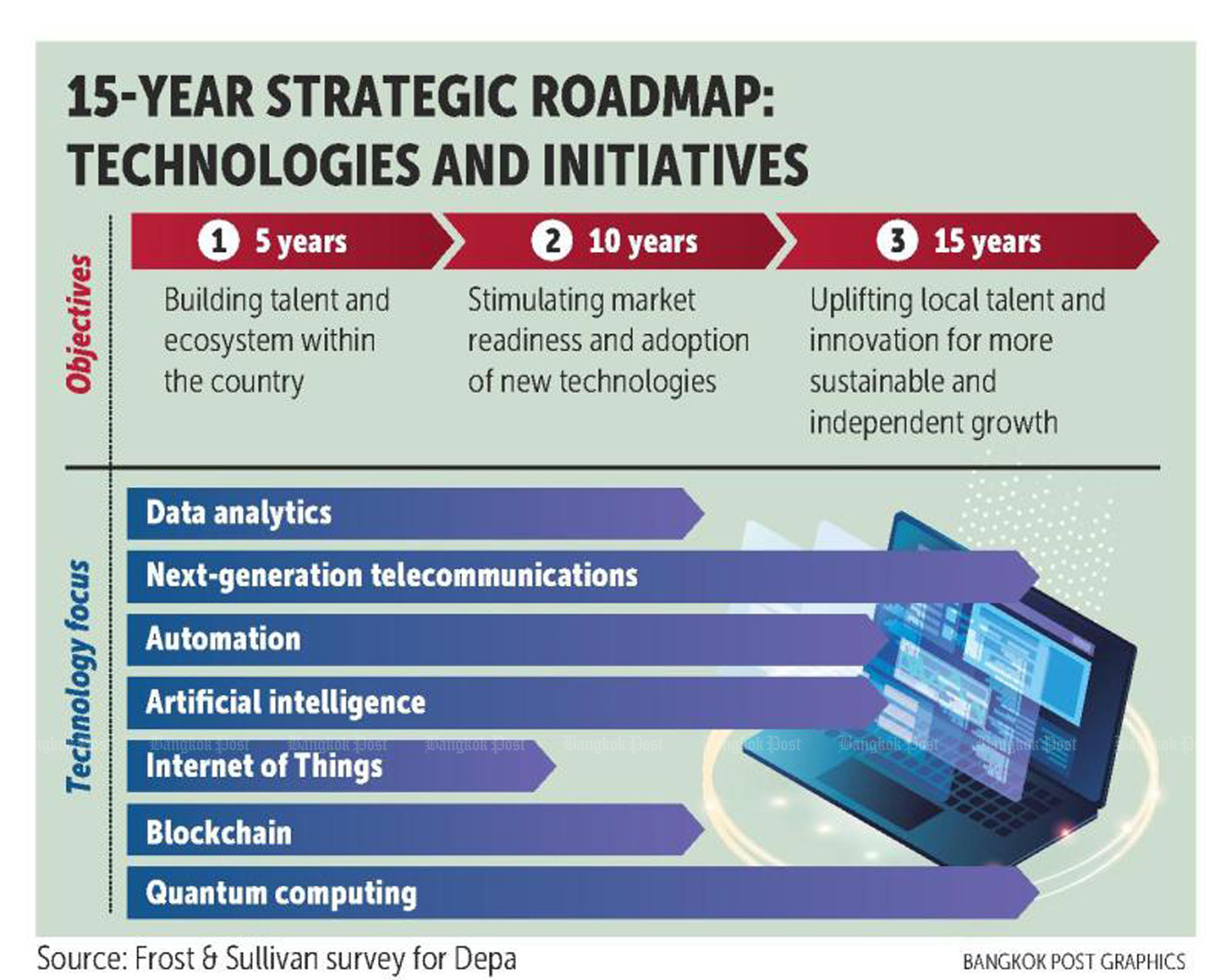The Digital Economy Promotion Agency (Depa) has plans to assist in producing 40,000 digital and tech-related workers per year by 2022, doubling the current level, through skills courses designed by major tech companies.
The 84 selected digital skill courses were suggested by four companies: Google, Microsoft, Cisco and Huawei.
The courses are expected to begin in the fourth quarter this year at major universities, aiming to supply talent on a broad enough scale to support the country's competitiveness in the digital economy.
The move is part of the Digital Thailand initiative to encourage the development and adoption of new innovative technologies.
Depa chief executive Nuttapon Nimmanphatcharin said the agency is collaborating with global tech companies to prepare the courses. The 84 courses will be classified into three categories: upskilling, new skills and reskilling.
Upskilling courses are intended to train workers in digital-related business and increase their base knowledge of tech-related skills. Enterprises who encourage employees to join the courses will be given tax incentives.
The new skills courses are targeted at building digital tech-related knowledge among those working in non-tech businesses. The government will subsidise part of these courses.
Reskilling courses are meant to create alternatives for students in academies and universities who are studying in digital-related programmes and interested in taking more courses related to tech development.
Mr Nuttapon said workers who pass the courses will be certificated by Depa.
The 84 courses are managed under what it calls "poll certification", which means each course will result in an equivalent educational degree, despite coming from different tech firms.
"Academies produce new talent for digital-related businesses estimated at 20,000 people per year in Thailand, and only 13,000 on average work in digital-related businesses, while the rest go to other fields," he said.
Of the 13,000, only 46% work in the tech development business.
Mr Nuttapon said Depa began a smart visa project last year aiming to attract talent from outside Thailand to bolster its tech industry. Some 140 people have been accepted under this visa scheme.
Digital talent under the smart visa scheme is allowed to stay in Thailand for a period of up to four years and is exempt from some fees that visa applicants must pay.
The smart visa service is part of the one-stop centre in Chamchuri Square in Bangkok.
Meanwhile, Frost & Sullivan in collaboration with Depa released a study on Tuesdaysuggesting the government recruit and leverage talent from the region and around the world, as an urgent action plan needs to be implemented to foster digital transformation, especially through collaboration with leading enterprises and universities.
Additionally, Thailand has to be ready to adopt seven key technologies between 2020 and 2035, which are the Internet of Things (IoT), artificial intelligence (AI), data analytics, 5G, blockchain, automation and quantum computing, said the study.
For the short term, Thailand should focus on IoT in transport, telecoms, agriculture and manufacturing; automation; data analytics in banking and financial services, telecoms, retail, tourism and healthcare; AI for vertical industries; 5G; and blockchain.
It also suggested recruiting talent from the region and around the world to help build and support new tech industries.
In addition, the study recommended establishing a Center of Technological Excellence to support the development of the seven technologies. Depa already set up the IoT and Digital Innovation Institute.
The country needs to keep developing understanding and awareness through events for small businesses, startups and large enterprises to exchange knowledge, experiences and networking, said the study.

